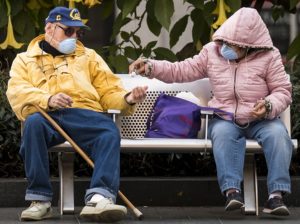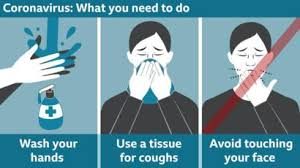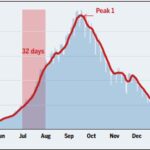Elderly care is very essential during global epidemics such as COVID-19.The Novel Corona Virus (COVID-19) can infect anyone, however, the older population is more prone to suffer from this ailment.


Corona viruses (CoV) or COVID -19 has become the talk of the town in recent times. Corona virus is a large family of viruses that cause illness ranging from the common cold to more severe diseases such as Middle East Respiratory Syndrome (MERS-CoV) and Severe Acute Respiratory Syndrome (SARS-CoV). A novel corona virus (nCoV) is a new strain that has not been previously identified in humans. The Novel Corona Virus (COVID-19) can infect anyone, however, the older population is more prone to suffer from this ailment.
An individual affected by the virus may start showing the symptoms within 2-14 days post their exposure to the CoV. Distinctive symptoms include fever, cough, shortness of breath, runny nose, sore throat, etc. However, an individual exhibiting these conditions doesn’t need to have been affected by the virus. Since it is easy to get confused between the symptoms of the COVID -19 and its lesser lethal cousins of the corona virus family like the Flu or Common Cold, it is highly imperative to examine the mentioned symptoms in conjunction with other factors such as;
- Any recent contact with COVID-19 positive person
- Shared spaces with the affected or
- Recent travel history to an area or country that has a widespread infection of COVID-19 and so on.
Government Medical Authorities from all over the world, based on initial data of the infection, have identified older adults and people who have severe chronic or pre-existing medical conditions like weakened immune systems, asthma, diabetes, heart issues, lung infections or diseases, or kidney diseases at significantly higher risk of contracting the infection with increased difficulty in recovery. The World Health Organization (WHO) has identified that the mortality rate is higher among people over 80 years of age as well as in those with underlying health conditions. Moreover, older adults are also more likely to have underlying health conditions that make it harder for their bodies to cope up with and recover from illness.
World Health Organization has declared the situation as a global pandemic and in such scenarios people may experience panic situations. Individuals tend to become frightened and commence their search for prevention almost immediately. Additionally, many individuals are also likely to spread false preventive/ cure techniques and ideas through various social media channels. People are also leaning towards implementing these home remedies, to safeguard themselves from COVID-19. Many people also believe that eating garlic and onions will avert the disease. However, people fail to understand that almost all research bodies in the world, the WHO, and pharmaceutical giants are working day and night to come up with a cure/ vaccine for the COVID-19 virus. Affected individuals as of now can only take self-preventive measures such as self-quarantine and ensuring that no droplets are released into the open air by covering their mouth and nose while sneezing and coughing.


- Pre-emptive isolation is not necessary yet but social distancing and frequent hand-washing are vital
- People with chronic health conditions – heart disease, kidney disease, liver disease, chronic respiratory disease, diabetes, and hypertension are also at higher risk, as are people with suppressed immunity, hence seeking medical attention at early stages is highly recommended.
- Keep surfaces that might be touched as clean as possible
Most importantly, it is extremely essential to listen to the doctor’s advice on these issues. There have been cases of family members disregarding the doctor’s advice of isolation, not waiting for test results to emerge and getting the patient discharged, only to lead to the patient’s death. Ignoring a doctor’s advice can be fatal, not only for the patient but also for the caregivers and their loved ones. Caregivers should practice extra precautions themselves and the family should have a backup plan to care for their loved one in case the caregiver gets sick.
With the elderly, their fears and anxieties need to be allayed. This makes it more important to speak and communicate with them regularly and alleviate their fears and doubts. This will help put to rest their nervousness and promote a calm, confident action plan to combat this virus and its spread.
Apart from following the general guidelines on regularly washing hands, avoiding crowds, and practicing social distancing, the elderly must think twice about having friends and family members visit them, especially if anyone in the family might be sick. There should also be enough supplies like food and medication in the house that can last for at least two weeks, or maybe more. In many cases, you can mail order the medication and use grocery delivery services, as ways to further protect the older adults in the family.


Mr. Prashanth Reddy, Founder & Director











